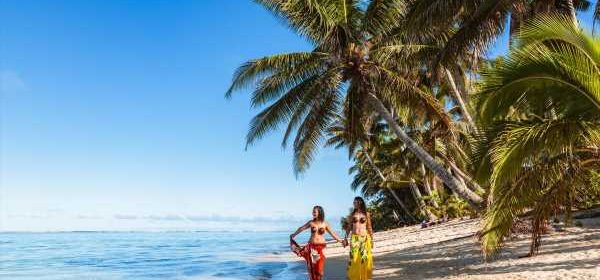Covid 19 Delta outbreak: New Zealand bailed out Cook Islands, on brink of economic catastrophe

The Government spent $20 million on a partial bailout of the Cook Islands in April.
The funding was not announced by the New Zealand Government at the time, but the Cook Islands Government released a statement quoting New Zealand’s high commissioner to the islands Tui Dewes.
“It is hoped that this contribution will go some way towards alleviating the Cook Islands’ current financial situation while also strengthening the country’s Covid-19 response,” Dewes said.
Documents released under the Official Information Act show just how precarious the Cook Islands’ financial situation had become, and confirm the money was intended to keep the Cook Islands’ debt at sustainable levels.
A briefing to Minister of Foreign Affairs Nanaia Mahuta in April warned that the Cook islands was facing “severe financial pressures, likely to continue into the next financial year”.
It warned “ongoing travel restrictions” had posed “serious additional fiscal challenges”, with projections showing that the Government’s budget deficit was likely to be $130 million in the 2020/21 financial year – roughly 30 per cent of the country’s entire economy, measured by GDP.
New Zealand’s Budget deficit for the same period was forecast to be just 4.5 per cent of GDP (the final figure has not yet been calculated).
This posed a serious problem for the Cook Islands, whose government had set a hard debt cap of 35 per cent of GDP. The Islands’ currency, the Cook Islands dollar is pegged to our dollar and the Cooks borrow in foreign currencies. This means the Islands are incredibly vulnerable to fluctuations in exchange rates, which could quickly make their debt pile unsustainable.
Foreign Affairs officials wanted the Cooks were among “several countries” in the Pacific that were “exceeding their target debt-to-GDP ratios and are at high risk of debt distress”.
Other small and developing countries like the Cook Islands would usually turn to the World Bank or International Monetary Fund (IMF) if they got into debt distress. The World Bank or IMF would offer the country loans to help it through a period of distress, while the country reformed its finances to get them on a more sustainable footing.
However, the Cook Islands are a realm of New Zealand, meaning they cannot join the IMF in their own right. This means the Cook Islands Government cannot access IMF loans.
Mfat officials said the Cooks’ “constitutional relationship with New Zealand has hindered the Cook Islands from joining (and therefore receiving financing from) the World Bank or IMF”.
The officials said the $20m in funding was reflective of “whanaungatanga and constitutional obligations to support the Cook Islands’ effective self-governance, economic resilience, and core public services, in the context of shared citizenship”.
The funding was approved by Cabinet and taken from an already approved fund of Covid aid for the Pacific Islands.
The Cooks’ finances are still in a perilous state. Before the pandemic, the country had set itself a “soft” debt limit of 30 per cent of GDP and a “hard” debt limit of 35 per cent of GDP.
The most recent accounts put net debt at 37 per cent of GDP – or $160m.
Finance Secretary Garth Henderson said at the time that the Islands would ” welcome any further financial support that the New Zealand Government is able to provide as we look ahead to rebuilding our economy – whether that be through further grant contributions, access to loan funding or other avenues of financial aid.”
“That said, we are of course very grateful for the current $20m contribution and it will be a huge help in maintaining the ongoing implementation of our Economic Response Plan,” he said.
Source: Read Full Article
